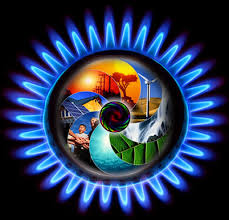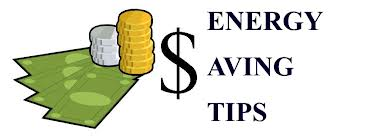|  | | U.S Gas & Energy 818.366.6999 | | It is cheaper to save energy than make energy |
|
| |  | | Energy & Water Conservation Tips

|
Regardless of the type of air conditioning and heating system you are using, you can save money and increase your comfort by maintaining and upgrading your air conditioning and heating equipment. However, you should keep in mind that using the whole-house approach to investing in a high efficiency air conditioning and heating system will have a much greater effect than simply installing an energy-efficient furnace or cooling unit.
|
|
In addition, combining HVAC preventative maintenance and high efficiency heating and cooling products with insulation, air sealing, and thermostat settings, you can also cut your energy use for heating and cooling and also reduce environmental emissions from 20% - 50%.
|
|
Other heating and cooling conservation tips include the following:
|
|
Be sure to set your programmable thermostat as low as is possible in the winter and as high as is comfortable in the summer.
Be sure to clean and replace filters on furnaces and air conditioners at least once a month.
Be sure to keep warm-air registers, baseboard heaters, and radiators clean and they are not blocked by furniture, carpeting, or drapes.
You should also have trapped air from hot-water radiators professionally removed at least once a season. Heat-resistant radiator reflectors should be placed between exterior walls and the radiators. Be sure to turn off kitchen, bath, and other exhaust fans within twenty minutes after use. Also when it comes time to replace them consider installing high-efficiency, low-noise models.
When shopping for a furnace, look for high Annual Fuel Utilization Efficiency (AFUE) ratings. The minimum is 78% AFUE, however, there are ENERGY STAR® models designed by all of your HVAC manufacturers that exceed 90% AFUE. For air conditioners, look for a high Seasonal Energy Efficiency Ratio (SEER). The minimum SEER is 13 SEER. ENERGY STAR models are 14.5 SEER or more.
Installing a whole-house fan will use the evening cool air to cool the house while also pushing hot air out of the attic. Installing ceiling fans will also help reduce your need for the air conditioner.
Preventive maintenance agreements for your air conditioning and heating system will ensure that your air conditioning and heating system is performing at its maximum potential and possible save on much more expensive future repairs.
|
|
Programmable Thermostats:
|
|
Turning your thermostat back by 7-10 degrees can save you as much as 10% on your heating and cooling bills. You can do this by using a programmable thermostat that will schedule the times you turn on the heating or air conditioning. As a result, your heating and cooling system does not have to run as much when you are not home. Programmable thermostats can also store up to 6-8 daily settings that you can manually override without affecting the rest of the day.
|
|
Additional Energy Conservation Tips:
Whether you are a lifelong Texan or you have just moved to Texas we all know about the heat of the Dallas, Fort Worth summers and what a strain they can be on energy costs. In addition to the heating and cooling energy conservation tips above we have also included some no cost and low cost energy conservation tips that will save valuable $$$ when needed the most!
|
|
|
No Cost Energy Conservation Tips:
|
|
- Be sure to turn off lights, computers and other appliances when not in use.
- During the winter and fall months take advantage of the cool fresh air of the outdoors. Consider opening windows on the sunny side of the house to take advantage of the free heat from the sun.
- Using your dishwasher, washing clothes and cooking and coking as late as possible will also cut your energy costs.
- Outdoor cooking is not just fun but can actually be cost effective. Fire up the grill outside and save by reducing the heat in your home allowing your air conditioning system to work less to cool your home. Pool timers allow your pool pump to run less and save valuable energy costs.
- Set your water heater to 120 degrees.
- Foundation vents should be closed during the winter months.
- Vacuuming your refrigerator coils periodically will also reduce the work load on your refrigerator, allowing it to work more efficiently. Also be sure to keep the seals clean.
- Wash "full" loads of clothes. This will save water and energy! Consider a clothesline! Your grandparents did! The energy saver on your dishwasher is exactly that. Allow your dishes to air dry instead of heat drying.
|
|
- Low cost
Fluorescent bulbs instead of incandescent ones will on an average save $1 per bulb changed out and will also reduce heat in your home. - Have your furnace cleaned and air checked for leaked at least once a year Consider installing a hot water heater blanket. (Make sure that you do not cover vents or temperature settings.)
- Installing hot water pipe insulation will keep water at its maximum temperature settings so that your hot water heater does not have to work harder than necessary.
- You would be amazed to know how much can be lost in the smallest of spaces, including electrical outlets and switch plates. Insulating these areas will save valuable dollars.
- Landscaping is not just beautiful but trees and shrubs on the west side of your home will act as insulation by providing shade that will reduce thermal gain in your home.
- Conserve our precious mineral, water! Fixing leaky faucets and installing low-flow showerheads will cut your water bills.
- Use room fans to keep the air moving and reduce the feeling of heat in your home. Solar blanket for your pool as opposed to an electrical powered heater will save energy costs and extend your swim season.
|
Water Conservation Is All Our Responsibility
To protect our lives - Water Supply is committed to the conservation of water and we work diligently to eliminate all sources of waste.
There are ways that people can conserve water as well such as:
 Avoid watering lawns between the hours of 9:00am and 8:00pm. Avoid watering lawns between the hours of 9:00am and 8:00pm.
This will decrease loss by evaporation. - Do not water lawns during periods
of high wind.
- Use soaker hoses when practical.
- Do not water driveways,
sidewalks, and streets.
- Install drought tolerant grasses
and plants
- Do not over water. You can easily determine just how much water you are putting on your yard whether you are using an automatic sprinkler system or conventional methods. Just read your meter immediately prior to watering and then again immediately after watering and find the difference between the two readings. The meters register in tens of gallons so there will be a "fixed" zero on the register that must be used for the reading to be accurate.
These tips can help conserve water and save you money!
Water conservation does wonderful things for all of us. For our Water Treatment Plant, it saves wear and tear on equipment and reduces the possibility of expensive repairs. For the consumer, it saves you money by reducing your water and sewer bill. It’s a win-win situation!
- Water Conservation Tips for Outside Your Home
-
- Choose water conserving plants.
- Use mulch around plants and shrubs; this also reduces weed growth.
- Use a broom instead of a hose to clean outdoor walking surfaces.
- Use a bucket to hand wash your vehicle.
- Use a hose nozzle that turns on and off.
- Water before 9 a.m. when the temperature is cooler.
- Use rain barrels to collect rainwater for watering small gardens and potted plants.
- Know your plant’s water needs.
- Know your soil type to prevent water run-off.
- Install a moisture sensor in each automatic sprinkler zone to avoid runoff.
- Deep soak shrubs in evening hours once or twice a week.
- Aerate your lawn once or twice a year to loosen soil and reduce compaction.
- Measure sprinkler output by placing three or more cans in various locations throughout the sprinkler pattern. Water for 15 minutes then measure the depth in the cans to see how much water the sprinkler has applied.
- Water efficiently by using a sprinkler that releases large drops of water close to the ground. Traveling sprinklers are some of the most efficient.
- Check your sprinkler coverage to make sure it covers just the lawn. Avoid watering on windy days.
- Periodically check the performance of an automatic sprinkler. These systems need annual maintenance.
- Water Conservation Tips for Inside Your Home
-
Bathroom
- Gurgling sounds coming from a toilet may mean wasted water. Check the flush ball or valve for adjustments. To check for a leak, place a few drops of food coloring in the tank. If the color shows up in the bowl before the next flush, you have a leak.
- Placing a plastic jug weighted with sand or stones in the toilet tank can save five or more gallons per day. Make sure it doesn’t interfere with the mechanism in the toilet tank.
- Install a high-efficiency, low-water use toilet.
- Don’t use a toilet as a wastebasket.
- Limit showers to five minutes or less. Turn off the water while shampooing and soaping up.
- Do not let water run while shaving or brushing your teeth.
Kitchen
- When washing dishes by hand, don’t let the water run freely. Instead, rinse dishes in a basin or plug the second side of the sink. Soak pots and pans before scrubbing.
- When washing dishes by hand, use low sudsing detergents as they require less rinsing.
- Compost fruit and vegetable scraps to avoid running your garbage disposal.
- Run the dishwasher only with a full load.
- Set your dishwasher to “light wash” or other water-saving settings.
- Store water from the tap in your refrigerator instead of letting the faucet run to get cold water.
Laundry
- Clothes washers are more water efficient if run only when full.
- Adjust your washer’s water level to the size of each of your loads.
- To wash clothes by hand, don’t let the water run. Instead, plug the laundry tub and reuse wash and rinse water. Starting with light colored clothes then progress to dark colored clothes.
- Water Conservation Tips for All Around Your Home
-
- Even a leak the size of a pinhole can waste 170 gallons a day. A trickle may add up to 250 gallons a day. Check for leaks by reading the outside water meter display before you go to bed. Check it again before turning any water on. If the display number has changed, you probably have a leak somewhere in your house. Start searching for a possible cause or call a plumber.
- Install water conserving fixtures.
- Replace high water use appliances.
- Avoid running the water until it is hot. Insulate your water heater and hot water pipes.
- Be conscious of water use inside and outside of your home .
|
| |
| |
|
|